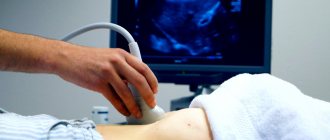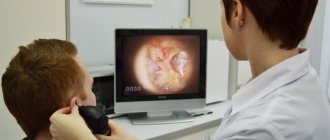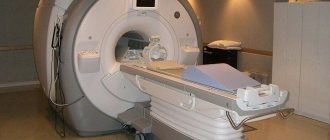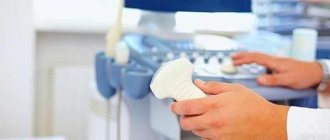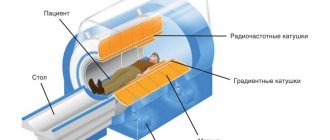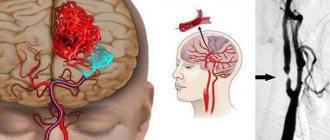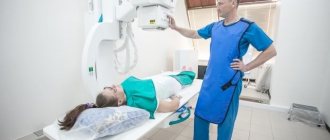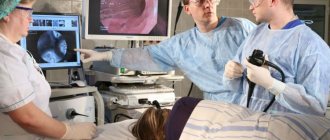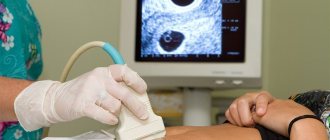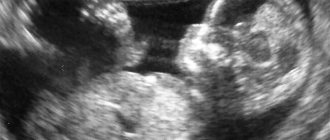How to prepare properly?
Despite the simplicity of the technique, preparation for ultrasound examination is necessary. Its necessity is explained by the peculiarities of the location of the urinary organs, as well as the properties of ultrasonic waves.
The doctor determines the scope of the necessary examination and gives appropriate recommendations to the patient. Ultrasound is usually scheduled, so the patient has enough time to prepare - the optimal period is three days.
An emergency examination is carried out in emergency situations, so preparation is not required. If you have a little time, it is recommended to cleanse the intestines.
The nurse gives the patient a memo - all the rules are written down in it. Preparation for a kidney ultrasound in men is no different from that in women.
Examination of the urinary system is prescribed according to indications:
- painful and frequent urination;
- inflammatory diseases - pyelonephritis, glomerulonephritis;
- developmental anomalies;
- infections accompanied by damage to the urinary tract;
- formation of stones in the kidneys and bladder;
- tumors and cysts.
Other diagnostic procedures performed before a kidney ultrasound include urinalysis and radiography. Ultrasound allows you to assess the condition of the kidney tissue and blood flow.
There are no contraindications for ultrasound; this procedure is safe and can be performed even on newborns. The natural conditions of the body are also not an obstacle, that is, an ultrasound of the kidneys can be performed on women during menstruation. There is no need to take a long break between examinations.
What to take with you to the ultrasound?
The examination is carried out in an ultrasound diagnostic room. It is equipped with everything necessary for the procedure. You will need to take with you a disposable diaper or sheet, which the doctor will lay on the couch. You will also need a napkin or towel to remove the special gel that is used during the procedure.
Preparation includes maintaining personal hygiene. Before the inspection, you must remove all jewelry and put away your mobile phone.
How can H2O affect the examination?
Excess water during the period of preparation for the examination increases the load on the organs of the urinary system and increases urination. With diseases such as cystitis, impaired urine outflow, and ureteral obstruction, this can cause additional suffering to the patient.
In addition, patients confuse the rules for preparing for an ultrasound of the genitourinary system with a kidney examination.
In the first case, a full bladder is required for a quality examination .
It covers the female reproductive organs, and the presence of fluid in it facilitates the passage of ultrasound. And in preparation for an ultrasound of the urinary system, many also begin to drink water, trying to fill the bladder as much as possible. The kidneys are located higher, they are not covered by other hollow organs. Excess water increases the stress on them. And if the bladder is full, during the examination the doctor will see the expansion of the renal pelvis.
Based on such an ultrasound, the nephrologist will make an incorrect diagnosis and choose the wrong tactics for managing the patient. This is fraught with financial costs and the development of complications. You should not specifically fill your bladder before a kidney examination. This will distort the survey results.
Is it possible to drink and eat before a kidney ultrasound?
A special diet is not required before an ultrasound scan of the kidneys, unlike an examination of the abdominal cavity. The air in the intestines is an obstacle to ultrasonic waves. But this is important when looking at organs located in the abdominal cavity.
The kidneys are located retroperitoneally, so the algorithm for their study is somewhat different. They are examined from the back and side, so the presence of gases slightly distorts the result of the study.
However, for maximum reliability, the doctor recommends following a special diet at least three days before the procedure.
What can and cannot be eaten before the examination?
Avoid foods that cause increased peristalsis and gas formation in the intestines from the diet:
- legumes;
- pearl barley;
- black bread;
- baked goods;
- milk;
- grape;
- sweets.
It is allowed to eat cereals, soups, crackers, apples. Whether to do an ultrasound of the kidneys and bladder on an empty stomach or not does not matter. It is not recommended to have breakfast only if the liver and gall bladder are being examined at the same time as the kidneys.
Do I need to drink a lot of water before a kidney ultrasound?
To examine the kidneys, no special drinking regimen is required. But usually the bladder is also examined at the same time. This is a hollow organ that collapses when unfilled and becomes inaccessible to inspection.
If it is necessary to assess the condition of the bladder, preparation includes drinking at least one and a half liters of clean water on the morning of the examination or 1.5–2 hours before. After this, you should not urinate until a diagnosis is made.
During preparation for a kidney examination, it is recommended to drink only water, weak tea, and herbal drinks. You can drink strong tea and coffee no later than three days before the procedure. Such drinks contribute to vasospasm, which reduces the effectiveness of diagnosis. Carbonated drinks, which increase peristalsis, are excluded.
General principles of training for men and women
In order for the preparatory stage before the examination to pass with maximum benefit, you should strictly follow the requirements and recommendations of the doctor responsible for the treatment process. All preparatory aspects come down to the following general principles:
- The gastrointestinal tract must be freed from gas formations. An ultrasound will give false results when there is gas in the colon. So this issue will have to be given close attention.
- Approximately three to five days before the procedure, you should start a diet, observing a gentle diet.
- Simultaneously with proper nutrition, they begin to cleanse the gastrointestinal tract of old deposits and feces. You should take activated carbon, which helps cleanse the body of negative inclusions. Your doctor may prescribe mild laxatives.
Medications
How to prepare with medications before a kidney ultrasound? No special medications are needed for preparation. If a person takes diuretics, they should be stopped the day before the test. In order to cleanse the intestines and eliminate gas formation, the following are prescribed:
- laxatives - “Fortrans”, “Duphalac”;
- antispasmodics - “No-shpa”, “Trimedat”;
- enzyme preparations - “Mezim”, “Festal”;
- medicines for bloating - “Espumizan”;
- sorbents - “Polysorb”, “Enterosgel”.
Sorbents and enzyme agents are prescribed for three days. Laxatives and carminatives are necessary to cleanse the intestines immediately before the examination. They are taken on the last day of preparation, in the evening. In the morning, the intestines should be emptied.
Additionally, we invite you to watch a video from an Honored Doctor of the Russian Federation about preparing for the procedure:
What is an ultrasound machine
Ultrasound refers to high-frequency sound waves with frequencies above 20 kHz. In medicine, frequencies in the range of 2-10 MHz are used. Different tissues conduct ultrasound differently and have different reflection characteristics. This makes it possible to obtain an ultrasound image. Ultrasound is emitted by the sensor of the ultrasound machine, and when the reflected echo signal returns to the sensor (the sensor both generates and receives waves), two- and three-dimensional reconstruction of the image of the tissue through which the ultrasound waves have passed becomes possible. This information is displayed in real time on the monitor of the ultrasound machine.
Preparations for pregnant women
Pregnant women do not need to do anything special before an ultrasound scan of the kidneys. There are no distinctive features in preparing for an ultrasound of the kidneys in pregnant women. The only difficulty is examining the bladder.
During pregnancy it is more difficult to keep it full. Therefore, the volume of liquid is reduced to a liter and drunk an hour before the procedure.
Pregnant women are more likely to experience flatulence, so they must be prescribed carminatives. Nutritional preparation is carried out in the same way as for non-pregnant women. Avoid foods that can cause flatulence and bloating from the diet.
Is food harmful to research?
Many patients ask whether they can eat and drink on the day of the examination. The diet on the eve of the ultrasound should exclude a heavy evening dinner, but a light breakfast in the morning will not hurt you. There are no restrictions on drinking; you are even allowed to take it with you. But if, in addition to the kidneys, other organs are subject to examination, then it would be better to abstain from food.
Which products should you prefer?
On the eve of an ultrasound examination of the kidneys, it is recommended to eat foods that are quickly digested:
- porridge cooked in just water;
- lean fish, boiled or steamed;
- lean meat - rabbit, young beef;
- soft-boiled eggs;
- low-fat cheeses.
What not to eat before a kidney ultrasound
Products that are recommended to be excluded from your diet before performing the examination procedure:
- Bean varieties that promote gas formation. This is explained by the high content of difficult-to-digest polysaccharides in any legume crop.
- Confectionery products and rye bread are definitely excluded. If a person cannot do without baked goods, it is allowed to eat varieties of white bread.
- Fresh vegetables that have not undergone heat treatment, as they contain a large amount of the polysaccharide element.
- It is necessary to temporarily give up apples and pears, and not eat peaches and figs.
- Fish and fatty meats are excluded.
- Temporarily you will have to do without dairy products containing lactose. As a person grows older, fewer and fewer enzymes are formed that help break down milk sugar. Lactose, once in the intestines, ferments vigorously, producing gases.
- Spices that can irritate the mucous membrane of the gastrointestinal tract are also considered a hindrance. These include cumin, any type of pepper, curry, etc.
Features of the drinking regime
Drinking alcoholic beverages is prohibited before the kidney examination procedure. You should also avoid carbonated lemonade, because it can cause fermentation in the gastrointestinal tract. This effect is possible due to the carbon dioxide contained in the bubbles of the drink. Then it accumulates in the intestines, creating an irritating effect.
The cause of fermentation may be other components included in carbonated water - dyes, preservatives, stabilizers.
A patient undergoing a kidney ultrasound should not drink much before the procedure. Strong tea or coffee can be irritating and should be avoided. Clean water in small quantities, not exceeding one hundred milliliters, will not harm.
Preparing children
Kidney examinations using ultrasound are carried out even in newborns. The rules for preparing for kidney ultrasound in children do not differ from those in adults. The duration of preparation is also three days.
A light diet with limited carbohydrates is prescribed. Infants are temporarily not given fruit and vegetable purees. A child of conscious age needs to be explained how the procedure will take place and what preparation is required.
In the presence of flatulence and constipation, carminatives are indicated. They are prescribed to children throughout the preparation in the form of drops - “Espumizan”, “Bobotik”, “Sub-simplex”. To prepare for a bladder examination, you should also drink enough fluids. The volume depends on the age of the child - up to 7 years old no more than a glass, up to 15 years old about half a liter.
Preparation for ultrasound examination of the kidneys increases diagnostic efficiency. It consists of short-term adherence to a diet and drinking regimen, and taking intestinal cleansing agents. The preparation is the same for men, women and children.
Leave comments on the article and share your experience. Share this article with your friends on social media.
When is a bladder ultrasound necessary?
Diagnostics with ultrasound equipment is required for both men to examine the prostate gland, and women to study the insides of the uterus and the appendage area. The most common question from patients to the gynecologist is ultrasound of the bladder in women: how to prepare and how is the examination performed? The procedure is most often done for all patients through the anterior surface of the peritoneum.
In some cases, the examination is done through the vagina using a special ultrasound probe, but only in the absence of pregnancy and provided that the patient is sexually active.
In men, the procedure is also carried out not through the surface of the abdomen, but through the rectum - this way the specialist can examine the prostate gland and the seminal vesicles nearby, which are inaccessible through abdominal examination.
Such diagnostics makes it possible to detect the disease in organs at an early stage, which clearly facilitates timely and effective treatment with medications.
The need for an ultrasound examination of the bladder arises under the following factors:
- if there is a suspicion of pathology of one of the organs of the genitourinary system, or if a certain disease has already been identified;
- the need to identify the cause of erythrocyturia, when a significant amount of erythrocytes in the sediment is detected in the urine examined in the clinic;
- after analyzing the patient’s complaints characteristic of cystitis, stones and concretions in the bladder or kidneys, prostatic hyperplasia;
- when identifying the cause of urinary retention in the body and symptoms of dysuria;
- if there are suspicions of tumors and other formations, both benign and malignant, cysts or papillomas in the ducts for urine output;
- with symptoms of diverticulosis, the formation of a cavity near the organ where urine accumulates;
- with injuries to the bladder or adjacent organs of the urinary system, when only ultrasound can determine leakage into the paravesical space;
- when monitoring the effectiveness of the prescribed drug regimen;
- in case of changes in laboratory tests, when the patient has identified indicators of pathology of the genitourinary system.
More on the topic: What information is included in the bladder ultrasound protocol?
Doctors' advice
If the digestive tract is stable, before the study it is enough to take carminatives for two days: activated carbon (1 tablet per 10–15 kg of weight) or Espumisan (capsule three times a day).
For patients with digestive problems (regular bloating, constipation), it is recommended to add an enema procedure to the medications the evening before the ultrasound (enema is prohibited on the day of diagnosis). You can do a regular enema, 2 liters in volume, or use the modern Microlax microenema. If it is not possible to give an enema, then you should resort to the help of mild laxatives (Guttalax, Fitolysin).
For the smooth functioning of the digestive tract, it would be useful to use enzyme medications that improve digestion. Mezim, Pancreatin, Festal should be taken one tablet during breakfast, lunch and dinner. Correctly fulfilled preparation conditions enable the doctor to easily diagnose diseases of the kidneys and other organs responsible for the process of urine excretion.
If the doctor suspects the presence of not only renal pathologies, but also a deviation from the norm in the functioning of adjacent vessels, a special type of diagnosis is prescribed - ultrasound with Doppler (duplex). Double examination is more effective. It allows you to identify changes directly in the organ, the speed of blood flow and the cleanliness of blood vessels (the presence of blood clots, atherosclerotic growths on the vascular walls, expansion or narrowing of the vascular system of the kidneys).
Ultrasound evaluates the general anatomical structure of the organ in the same way. In the postoperative period, ultrasound is performed to monitor the results of the intervention. Duplex scanning of the kidneys is not performed if examination of other organs of the digestive system is scheduled on the same day, as well as if there are lesions on the epidermis in the area of the organs being examined. If Doppler sonography was prescribed, compliance with preparatory measures for the procedure remains unchanged.
Is food harmful to research?
Not every patient wonders whether it is possible to eat before a kidney ultrasound, but this circumstance can significantly affect the results of the procedure. If there is an excessive accumulation of gases in the intestines of a person coming for an examination, ultrasound scanning may be difficult, and the picture displayed on the monitor will not be clear enough or distorted.
To achieve the most effective results of the examination, the patient is recommended to limit the consumption of food that causes fermentation in the intestinal lumen, as well as dishes that irritate the intestinal mucosa, 2-3 days before the procedure.
The diet before a kidney ultrasound involves avoiding foods that cause gas formation and intestinal spasms. Foods that have an undesirable effect:
- Legumes (peas, lentils, soybeans and beans) - such food, being in the intestines at an intermediate stage of digestion, releases a lot of gases. This is due to the presence of a large number of difficult-to-digest polysaccharides in legumes;
- It is recommended to completely exclude confectionery products (pies, buns, cakes, pastries, muffins, cupcakes) and black rye bread before ultrasonography. If a person cannot refuse baked goods for any reason, preference should be given to white bread varieties;
- Thermally unprocessed vegetables (cabbage, corn, potatoes, asparagus and onions) also contain many polysaccharide compounds;
- Fruits (due to the presence of fructose in the composition). It is recommended to avoid apples, pears, peaches and figs;
- Fatty meats and fish. During breakdown in the intestines, fat, like carbohydrates, contributes to excessive gas production;
- Dairy products containing lactose (milk sugar). Problems with digesting such food are due to the fact that with age, a person develops an insufficient amount of enzymes that help break down lactose. Milk sugar, entering the intestinal lumen, begins intense fermentation, which is accompanied by excessive gas formation. The older a person is, the fewer enzymes his body produces necessary for this process;
- Spices that irritate the intestinal mucosa, for example, red and black pepper, curry, cumin and others.
